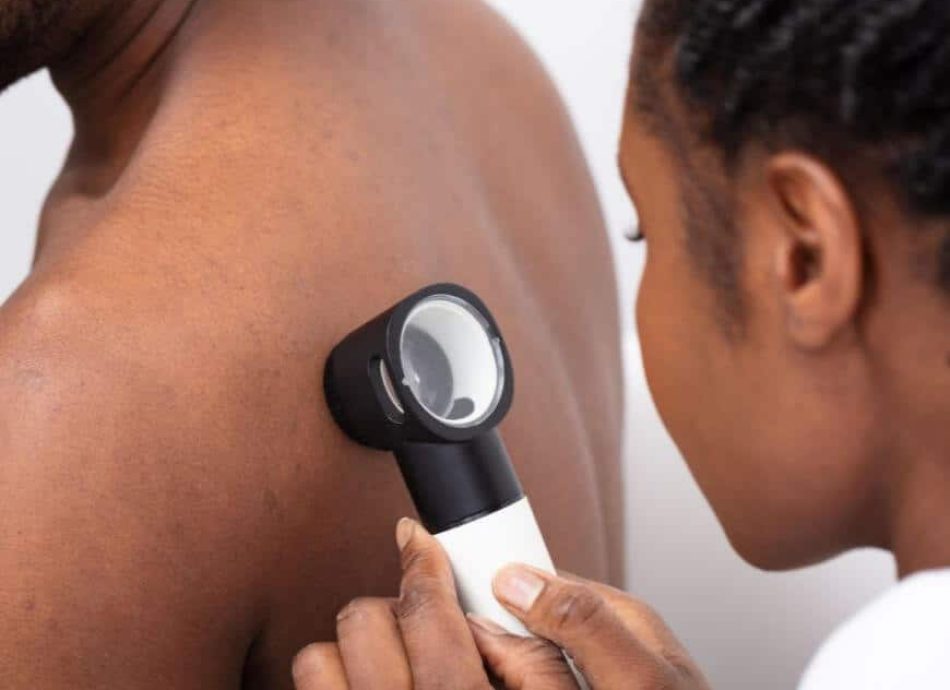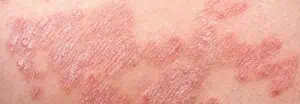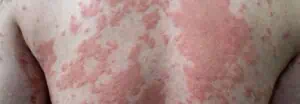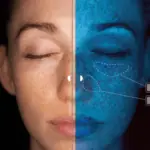Award winning dermatology service, with over 20 years of experience
Short waiting lists, on some occasions offering same week appointments
Safe environment, in Care Quality Commission approved facilities
Conditions
Laser tattoo removal canterbury
HOW DOES LASER TATTOO REMOVAL WORK?
A laser produces a powerful beam of light that can precisely transfer energy into the targets within the skin. The beam of light is produced in one wavelength which will be preferentially absorbed by certain tattoo pigments. The key requirement for a laser to remove tattoos is for it to be Q-switched. This means that the energy is delivered in a very short pulse-duration which ‘cracks’ the tattoo pigment particles and is effectively absorbed by the tattoo pigment. The Canterbury Skin and laser Clinic uses a Q switched Nd:YAG laser which can produce several wavelengths to target a range of tattoo pigments. IPLs and non Q-switched lasers will not be effective on tattoos, delivering energy that is not effectively absorbed by tattoo pigment and which may damage surrounding skin. Some tattoo pigments respond well to lasers, colours like green do not always respond well.
The immediate effect is a whitish response at the tattoo site. Once the skin has healed over some fading will be evident, the amount depending on the type of tattoo and its colour. However, there is no guarantee that the tattoo can be completely removed. Significant fading of the tattoo can, however, continue for up to 3 months after laser treatment in some cases.
FREQUENTLY ASKED QUESTIONS
HOW MANY TREATMENTS WILL I NEED?
Professional tattoos typically require 6 or more treatments, whereas amateur or traumatic blue-black tattoos may only need 1 to 2 sessions and coloured tattoos can take many more sessions.
Studies have shown that 85% of amateur tattoos can be completely removed after just three treatment sessions. Professional tattoos take longer with 70% removed by 6 treatments. More treatment sessions in both tattoo types will result in further clearances. Tattoo removal treatments are usually scheduled at 6 to 8 week intervals.
Tattoo removal isn’t painful, each laser pulse has been likened to that of an elastic band hitting the skin. Immediately after treatment, there may be swelling, bruising or crusting and scabbing, which can last up to 2 weeks. Some of the tattoo pigment is lost during this scabbing process.
HOW SHOULD I LOOK AFTER MY SKIN FOLLOWING LASER TATTOO REMOVAL?
Following laser tattoo removal, you should avoid:
- Swimming or using spas, saunas or hot tubs into the scab has dropped off as this may slow the healing process
- Strenuous exercise or physical activities for a couple of days following treatment
- Using soap or perfumed products on the treatment area for the first 48 hours following treatment
- Picking or scratching the scab
- Avoid sun exposure and tanning beds for at least a week following treatment
WHAT ARE THE RISKS OF LASER TATTOO REMOVAL?
Laser tattoo removal is a generally safe procedure, however some possible risks include:
- the tattoo not completely fading as some ink colours, such as yellow, green and purple, require more sessions to treat
- your skin may temporarily become darker or paler
- there is a slight chance of scarring
HOW LONG DOES TATTOO REMOVAL TAKE?
It can take multiple sessions to remove your tattoo, averaging between 6-8 treatments which are spaced out in 6-8 week intervals.
REQUEST A CALL BACK
Please fill in this form and one of our team will give you a call back to arrange a consultation with one of our expert dermatologists.

What our Customers Say
WHY HAVE LASER TATTOO REMOVAL AT CANTERBURY SKIN AND LASER CLINIC?
Here at Kent’s leading private skin and laser clinic, our experts are specialists in all aspects of dermatology, skin cancer, anti-ageing and beauty treatments. We are one of the few skin clinics in the UK where all medical consultations and treatments are provided by specialist doctors with Dermatology experience and laser training.
Canterbury Skin and Laser Clinic is regulated by the Care Quality Commission, ensuring the best level of treatment is provided to you in a safe environment. Our Clinical Lead Dr Mark Hudson-Peacock is a member of the British Association of Dermatologists, the British Laser Medical Association, the British Hair and Nail Society, the European Academy of Dermatology and Venereology and is certified by the Consulting Room. We have won many awards including the WhatClinic Patient Service Award in 2019 and the ghp Healthcare and Pharmaceutical Awards 2019.
INSIGHTS AND ADVICE

Complete Fall Skincare Guide
Embrace the season of transformation – Autumn. With its vibrant hues, this magical time of year also brings unique challenges for your skin. As the crisp air sets in and the days grow shorter, it’s not only autumn we’re welcoming but also the reminder that

Comprehensive Guide to Understanding Eczema
October is globally observed as Eczema Awareness Month, drawing focus to the people grappling with this challenging skin condition. Our mission, not just in October but always, is to empower you with robust knowledge about eczema‘s root causes, various treatments and useful coping techniques. This

Unravelling Psoriasis: The Focus of Psoriasis Awareness Month
Each August, we commemorate Psoriasis Awareness Month, a time dedicated to elevating public understanding of psoriasis – a chronic skin ailment affecting countless individuals worldwide. The initiative is designed to dispel myths surrounding psoriasis, encourage early detection and advocate for impactful treatment methods. To those






